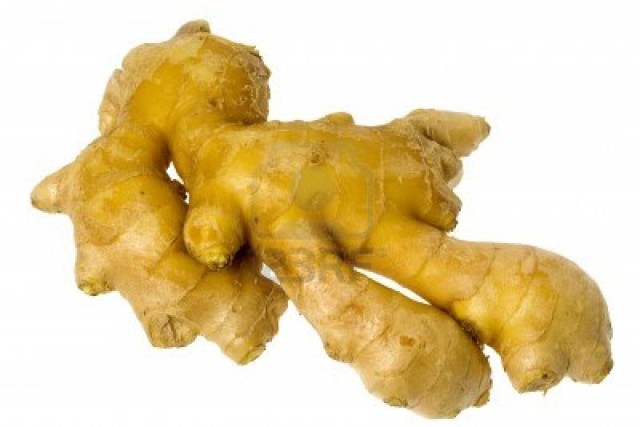Coughing always involves some type of irritation in the upper respiratory tract. It may be associated with a case of the flu, sinusitis, congestion, post nasal drip, or pneumonia. Additionally, coughing may be the result of chronic bronchitis, emphysema or COPD. Aside from over-the-counter cough suppressants or steroid drugs, there are no really effective conventional cough remedies. Regardless of its origins, most coughing responds to one or more herbal remedies.

White horehound
White horehound has been used by Native Americans and Ayurvedic practitioners as an expectorant to loosen congestion in the chest and relieve dry coughs. It also possesses potent anti-inflammatory properties relieving spasmodic coughing related to bronchitis and asthma. White horehound is combined with honey and other medicinal herbs into a lozenge to relieve sore throats. Additional methods for using this herb are in herbal teas and mixed in herbal tonics.
Fenugreek
Fenugreek loosens tightness in the airways and helps dry productive coughing. It has astringent properties that relieve sinusitis, helping to dry up post nasal drip. Fenugreek may be especially useful for allergic rhinitis, pneumonia and the flu with accompanying symptoms of cough and sinus congestion.
Licorice root
Licorice root provides relief from coughing and sore throats due to illness and allergies. It stimulates the body to create a protective mucus film preventing damage to the linings of the throat, airways and digestive tract. In particular, licorice root relieves pain associated with heartburn during coughing episodes when vomiting may occur. Licorice root is most commonly used as an herbal tea. It may raise the blood pressure in some individuals when used over a long period. De-glycyrrhizinated licorice, or DGL. is often substituted for licorice root. The product has had the glycyrrhizin removed, which makes it easier to tolerate with fewer potential side effects.
Slippery elm
Like licorice, slippery elm causes the body to create a mucus film in the throat, airways and all the way down the digestive tract, protecting their linings and soothing sore throats and dry, tickling coughs. Slippery elm comes in a powder that is easily mixed with water and heated to form a syrup. It's also available in lozenges.
Hot lemon and honey
Hot lemonade made with raw, organic honey, fresh lemon juice and hot water is soothing and will relieve most coughing. Lemons are high in antioxidants, potassium, and vitamin C, all known as immune system boosters. Honey soothes a sore throat and stops coughing by suppressing cough receptors to quiet the tickling sensation associated with most coughing.
Ginkgo biloba
Ginkgo biloga has been used for thousands of years by the Chinese for a variety of ailments including respiratory disorders. Along with relieving coughing, it's also used for stopping wheezing and for helping to expel mucus and phlegm from the airways and lungs. Studies note that Ginkgo may provide relief from asthma and related coughing.
Ginseng
This ancient Chinese herb may prevent colds and flu, or lessen the severity of symptoms if you are already sick. Ginseng is a whole-body tonic that strengthens the immune system. Regular use helps to prevent the onset of bronchitis and coughing related to the flu and pneumonia...
Read more here: http://www.jbbardot.com/stop-coughing-with-these-nine-remedies-control-coughs-from-flu-bronchitis-asthma-pneumonia-and-copd/
Go here, The JB Bardot Archives, for more great articles on natural health and alternative life styles.
The November 2011 edition of the New England Journal of Medicine reported that most emergency hospital visits for the elderly are caused by side effects and overdosing from taking blood thinners to prevent strokes and blood clots. Conventional doctors wait until you're at risk of a stroke or have had your first stroke to prescribe blood thinners in hopes of preventing additional strokes. What they don't warn you about are the serious possible side effects from these drugs including internal bleeding, stomach ulcers, muscle aches and pains, headaches with dizziness, kidney failure and a boat load of other negatives that can destroy your health. However, there are several natural substances that possess powerful anti-inflammatory properties and also help to thin the blood. These herbs can also produce their own side effects and should not be taken in combination with pharmaceutical drugs. Don't take any unfamiliar medicinal herb unless supervised by a well-trained herbalist or natural health practitioner.

Turmeric
Used in Ayurvedic and Traditional Chinese Medicine for thousands of years, the richly golden spice turmeric is hailed for it's ability to reduce pain and inflammation. Recent studies have revealed that its pain-killing properties compare with those of non-steroidal anti-inflammatory drugs, or NSAIDs; however, turmeric does not cause the internal bleeding and digestive upset or toxicity to the liver that is found in some cases of individuals taking NSAIDs.
Bromelain
Bromelain is an enzyme found in pineapples that also has anti-inflammatory properties and is especially helpful in reducing pain and stiffness associated with arthritis when taken on an empty stomach. Its action is enhanced when taken in combination with turmeric and ginger. Additionally, bromelain is a wonderful digestive enzyme when taken with meals and helps break down proteins, protecting against the formation of uric acid crystals, which are responsible for causing gout and certain types of kidney stones.
Ginger
Ginger is one of the royal ancient spices of India, China and Japan whose action works to reduce inflammation of the joints and muscles as well as strengthening the immune system and reducing digestive upsets and vomiting...
Read more here: http://www.jbbardot.com/bye-bye-coumadin-so-long-plavix-say-hello-to-five-natural-blood-thinners-that-protect-against-strokes-and-blood-clots/
Go here, The JB Bardot Archives, for more great articles on natural health and alternative life styles.

No comments:
Post a Comment